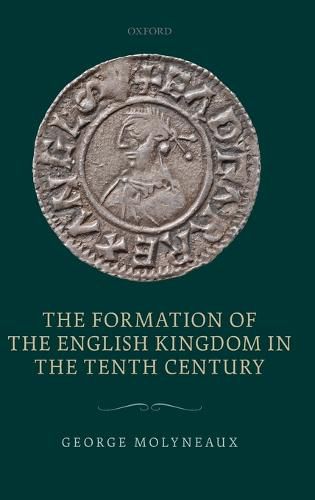Readings Newsletter
Become a Readings Member to make your shopping experience even easier.
Sign in or sign up for free!
You’re not far away from qualifying for FREE standard shipping within Australia
You’ve qualified for FREE standard shipping within Australia
The cart is loading…






The central argument of The Formation of the English Kingdom in the Tenth Century is that the English kingdom which existed at the time of the Norman Conquest was defined by the geographical parameters of a set of administrative reforms implemented in the mid- to late tenth century, and not by a vision of English unity going back to Alfred the Great (871-899). In the first half of the tenth century, successive members of the Cerdicing dynasty established a loose domination over the other great potentates in Britain. They were celebrated as kings of the whole island, but even in their Wessex heartlands they probably had few means to regulate routinely the conduct of the general populace. Detailed analysis of coins, shires, hundreds, and wapentakes suggests that it was only around the time of Edgar (957/9-975) that the Cerdicing kings developed the relatively standardised administrative apparatus of the so-called ‘Anglo-Saxon state’. This substantially increased their ability to impinge upon the lives of ordinary people living between the Channel and the Tees, and served to mark that area off from the rest of the island. The resultant cleft undermined the idea of a pan-British realm, and demarcated the early English kingdom as a distinct and coherent political unit. In this volume, George Molyneaux places the formation of the English kingdom in a European perspective, and challenges the notion that its development was exceptional: the Cerdicings were only one of several ruling dynasties around the fringes of the former Carolingian Empire for which the late ninth, tenth, and eleventh centuries were a time of territorial expansion and consolidation.
$9.00 standard shipping within Australia
FREE standard shipping within Australia for orders over $100.00
Express & International shipping calculated at checkout
The central argument of The Formation of the English Kingdom in the Tenth Century is that the English kingdom which existed at the time of the Norman Conquest was defined by the geographical parameters of a set of administrative reforms implemented in the mid- to late tenth century, and not by a vision of English unity going back to Alfred the Great (871-899). In the first half of the tenth century, successive members of the Cerdicing dynasty established a loose domination over the other great potentates in Britain. They were celebrated as kings of the whole island, but even in their Wessex heartlands they probably had few means to regulate routinely the conduct of the general populace. Detailed analysis of coins, shires, hundreds, and wapentakes suggests that it was only around the time of Edgar (957/9-975) that the Cerdicing kings developed the relatively standardised administrative apparatus of the so-called ‘Anglo-Saxon state’. This substantially increased their ability to impinge upon the lives of ordinary people living between the Channel and the Tees, and served to mark that area off from the rest of the island. The resultant cleft undermined the idea of a pan-British realm, and demarcated the early English kingdom as a distinct and coherent political unit. In this volume, George Molyneaux places the formation of the English kingdom in a European perspective, and challenges the notion that its development was exceptional: the Cerdicings were only one of several ruling dynasties around the fringes of the former Carolingian Empire for which the late ninth, tenth, and eleventh centuries were a time of territorial expansion and consolidation.